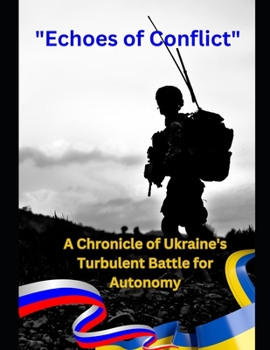Echoes of Conflict: A Chronicle of Ukraine's Turbulent Battle for Autonomy
The Russia-Ukraine conflict has become a defining geopolitical event of the 21st century. From its origins in the aftermath of the Soviet Union's dissolution to the ongoing tensions and military confrontations, understanding this complex situation is crucial for grasping the larger dynamics at play in Eastern Europe and global politics. In this introductory chapter to our comprehensive book on the Russia-Ukraine conflict, we will provide a historical context, examine key events and players, and set the stage for an in-depth exploration of the underlying motivations and potential consequences of this ongoing crisis.
A fundamental aspect of the Russia-Ukraine conflict lies within their intertwined histories. The countries share Slavic roots, and for centuries were part of larger empires that encompassed vast territories. Following World War I, Ukraine emerges as a Soviet Socialist Republic within the Soviet Union. Despite moments of tension, such as during the infamous Holodomor famine, the two countries maintained close ties - politically, economically, and culturally - throughout most of their shared history.





